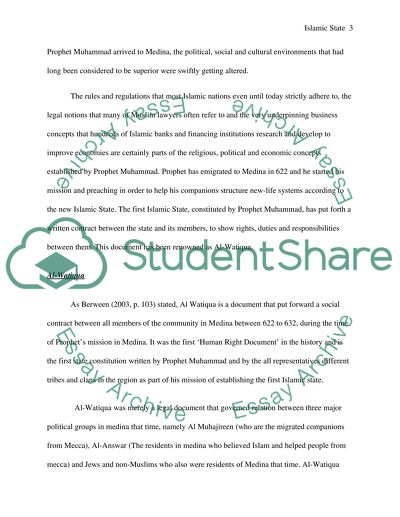Cite this document
(“The First Islamic State under Muhammad (622 - 632) Research Paper”, n.d.)
Retrieved from https://studentshare.org/history/1432466-the-first-islamic-state-under-muhammad
Retrieved from https://studentshare.org/history/1432466-the-first-islamic-state-under-muhammad
(The First Islamic State under Muhammad (622 - 632) Research Paper)
https://studentshare.org/history/1432466-the-first-islamic-state-under-muhammad.
https://studentshare.org/history/1432466-the-first-islamic-state-under-muhammad.
“The First Islamic State under Muhammad (622 - 632) Research Paper”, n.d. https://studentshare.org/history/1432466-the-first-islamic-state-under-muhammad.


